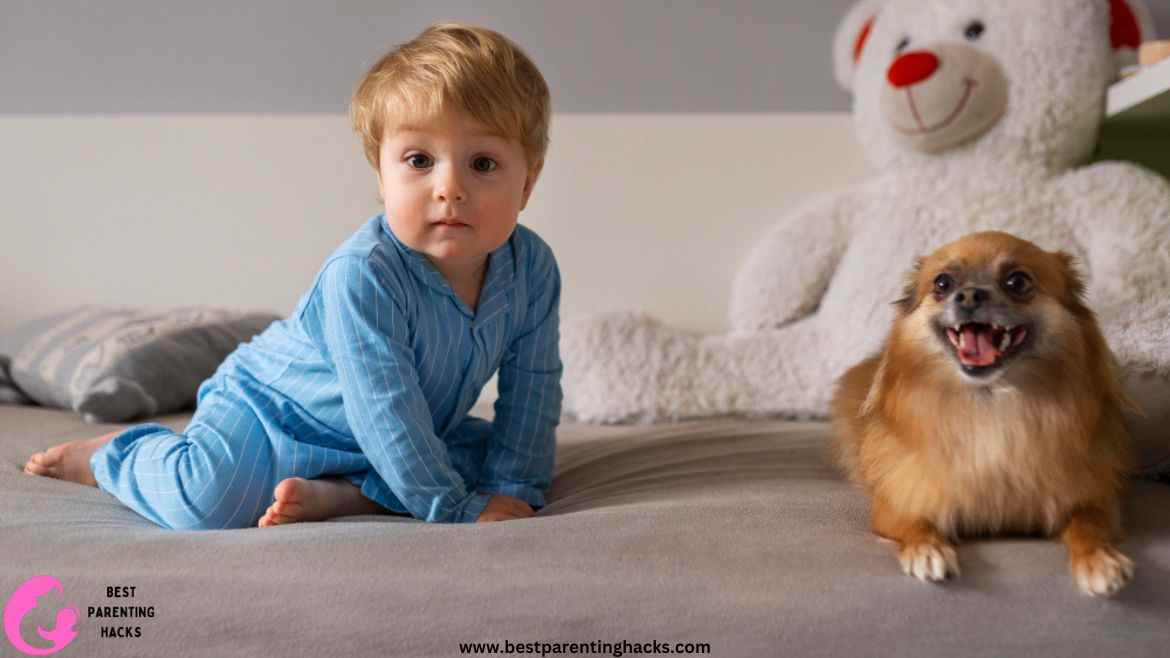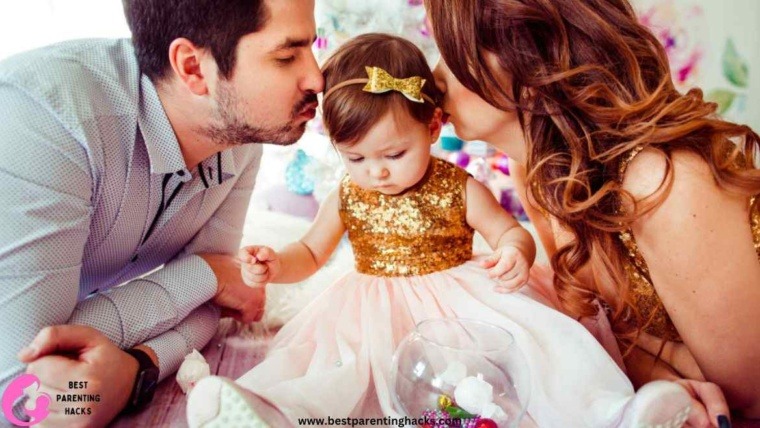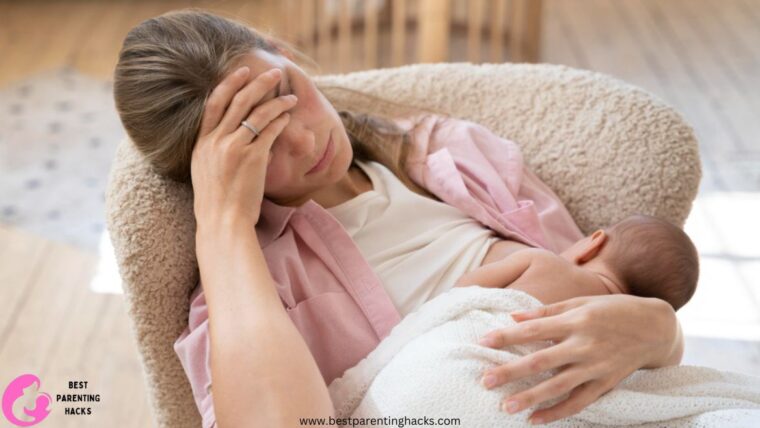Table of Contents
One of the most startling and unanticipated things I’ve ever experienced as a parent was learning that my child had consumed dog excrement. Although it may seem like an uncommon situation, it happens more frequently than you may imagine. Due to their natural curiosity and propensity to investigate the environment through their mouths, babies may inadvertently swallow something that they shouldn’t. My feelings toward my child when I first saw them in this situation were a mixture of worry and shock. How could this be done? What is my next step? I would ask myself over and over as I struggled to understand.
The most obvious solution to the urgent concern, “What should I do if my baby eats dog poop?” is to remain composed and take swift action. Even if its upsetting, things are typically under control and not as bad as they might appear at first. Knowing what the possible dangers are, how to respond swiftly and competently, and how not to let similar happenings take place again are the important things. To help any parent experiencing this unforeseen difficulty, I’ll relate my experience and the actions I took in this post.
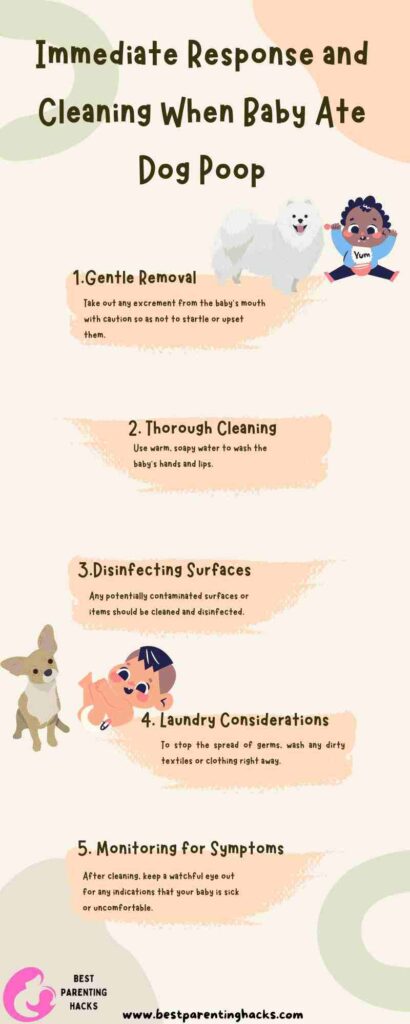
Immediate Response and Cleaning
When I realized my infant had consumed dog excrement, I had to act quickly. The infant’s mouth needed to be carefully cleaned of any leftover excrement as the first step. My baby’s hands and mouth were thoroughly cleaned after this to make sure that there were no leftover signs of poo. To prevent the infant from being distressed or harmed during this procedure, it is imperative to be thorough yet careful.
1. Gentle Removal: Take out any excrement from the baby’s mouth with caution so as not to startle or upset them.
2. Thorough Cleaning: Use warm, soapy water to wash the baby’s hands and lips.
3. Disinfecting Surfaces: Any potentially contaminated surfaces or items should be cleaned and disinfected.
4. Laundry Considerations: To stop the spread of germs, wash any dirty textiles or clothing right away.
5. Monitoring for Symptoms: After cleaning, keep a watchful eye out for any indications that your baby is sick or uncomfortable.
You Might Also Like to Read: I Accidentally Clipped Baby’s Skin. What Should I Do?
When to Seek Medical Attention
In my experience, being aware of when to seek medical assistance was essential to managing the circumstances. Even while it’s normal for newborns to investigate and occasionally swallow non-food objects, consuming dog feces calls for careful observation for any indications of disease.
1. Symptom Severity: Get medical help right once if your child exhibits severe symptoms such as frequent vomiting, a high fever, or bloody diarrhea.
2. Lack of Symptoms: It’s a good idea to get guidance from your physician even in the absence of any obvious symptoms.
3. Medical Tests: Stool tests to look for bacterial or parasite illnesses may be advised by your doctor, depending on the circumstances.
4. Treatment Options: Should an infection be identified, your doctor will provide advice on the best course of action, which may involve the use of antibiotics.
5. Follow-Up Care: Make sure to visit your physician again to check on your baby’s condition and recuperation.
You Might Also Like to Read: When Can Baby Eat Chicken Nuggets?
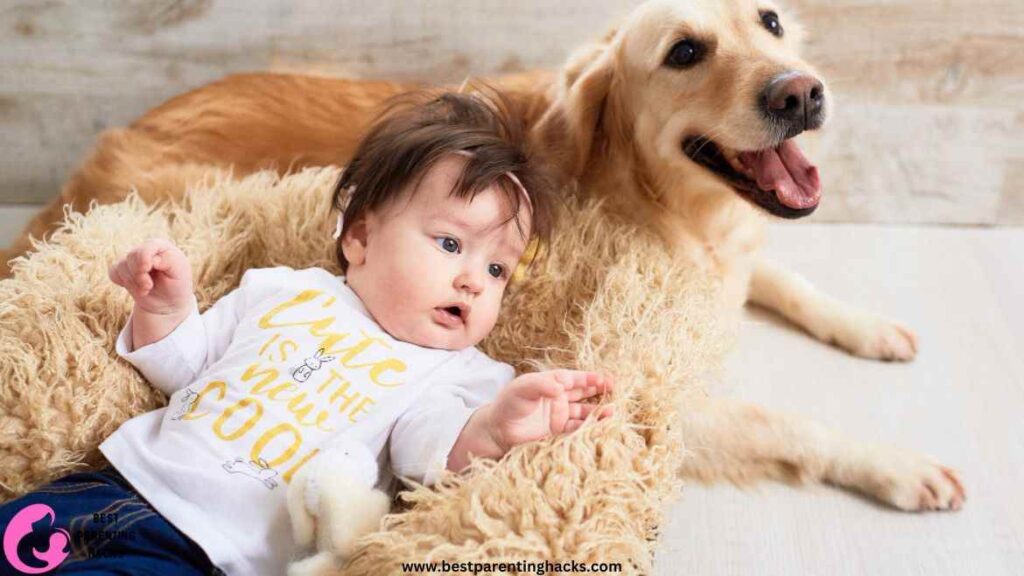
Understanding the Risks
The possibility of illness is the first thing that comes to mind when dealing with a newborn who has eaten dog excrement. Salmonella, giardia, E. Germs like Coli, and parasites are present in dog waste. Babies are particularly susceptible because of their growing immune systems; therefore, they might result in gastrointestinal disorders in them. Some of these disorders have more severe symptoms such as diarrhea, vomiting, and high temperature. If any illnesses were to occur in your child, then you should know these dangers so that you can always look out for signs of disease.
1. Bacterial Infections: Common in dog feces, bacteria such as salmonella and E. coli can induce symptoms including vomiting and diarrhea.
2. Parasitic Infections: Giardia and other parasites can potentially exist and cause digestive problems.
3. Monitoring Symptoms: Keep an eye out for any indications of disease, such as adjustments to appetite, mood, or physical health.
4. Severity of Symptoms: Although the majority of cases are minor, serious symptoms such as a high fever or bloody diarrhea need to be treated every once.
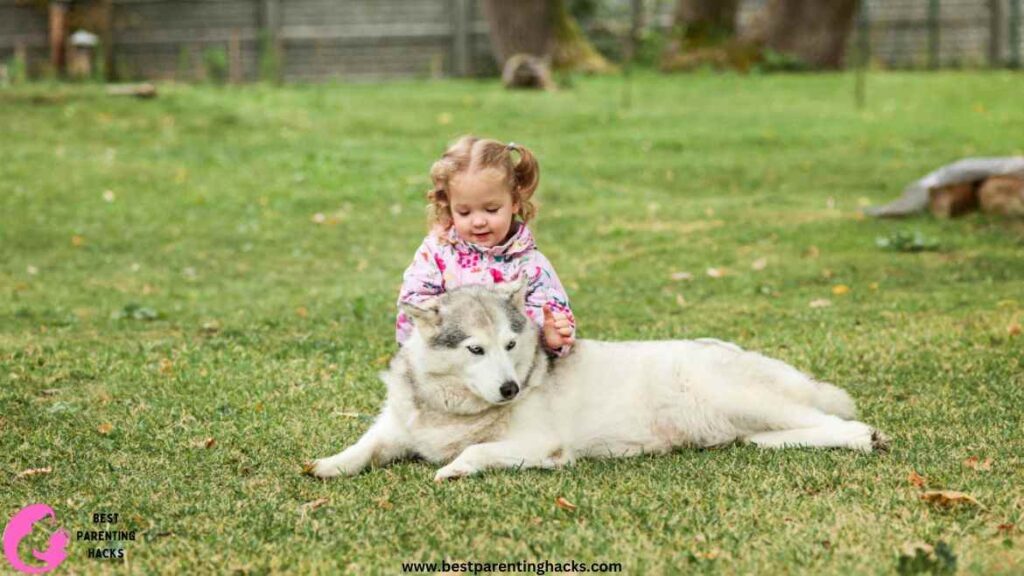
Preventive Measures
Following this encounter, I increased my vigilance to avoid similar situations. My first focus became making sure my infant could explore in a secure atmosphere.
1. Supervision: Keep a close eye on your infant at all times, especially in places where dogs are present.
2. Pet Hygiene: Keep your surroundings free of pet waste to reduce the possibility of feces exposure.
3. Baby-Proofing: To prevent access to locations where dogs urinate themselves, baby-proof your house.
4. Educating Others: Share with family members and caregivers the significance of keeping the infant clean and under supervision.
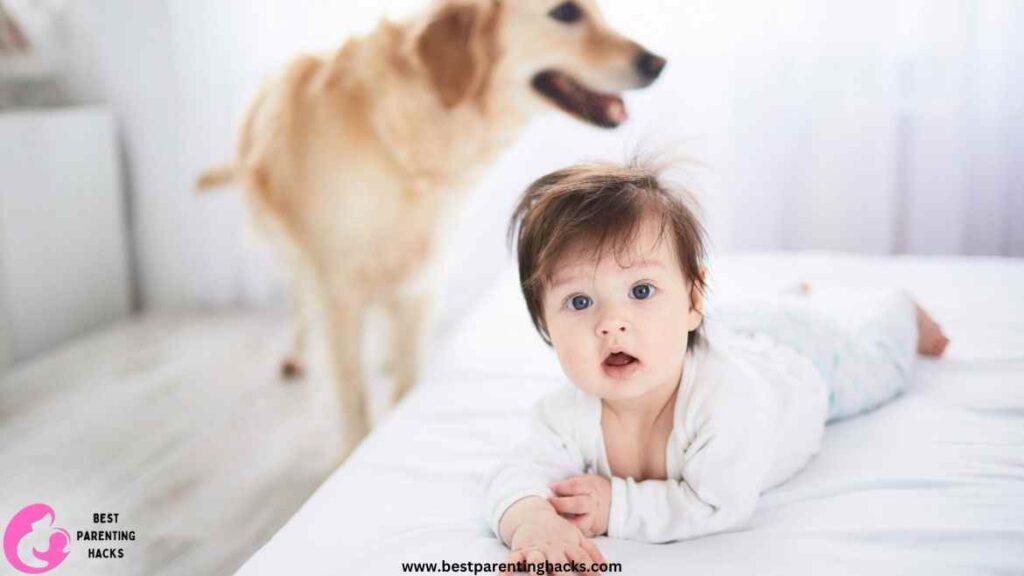
Dealing with Emotional Reactions
When such instances happen, it’s normal for parents to experience a range of feelings, from guilt to concern. This is how I controlled my feelings:
1. Acceptance: Recognize that these kinds of things happen frequently and are a natural part of learning for both you and your child.
2. Learning Experience: Take use of this to pick up new skills and put safer practices into place.
3. Sharing Experiences: Speaking with other parents may be reassuring and a good source of guidance.
4. Focus on Prevention: Rather than focusing on the issue, prioritize taking preventative action.
5. Self-Care: Make time for self-care to handle stress and keep a composed upbeat attitude.
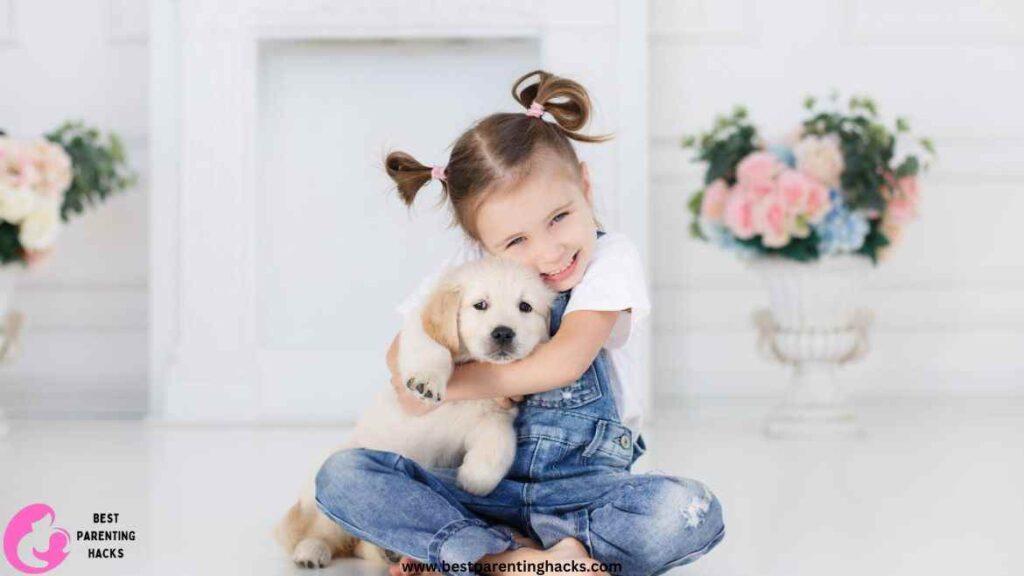
Conclusion
In short, this may sound disturbing and alarming, but in fact, a dog’s excrement ingested by a newborn is not as bad as one might think. To avoid such accidents from happening again it is crucial to move quickly, understand the risks involved, get medical help if necessary and install preventative measures. Recall that you are not alone in your parenting journey and that these difficult events are a normal part of the learning curve that all parents must endure.
FAQs
1. What should I do right away if my infant consumes dog poop?
• Clean any contaminated surfaces, remove any excrement from the baby’s mouth, and wash their hands and mouth with warm, soapy water.
2. What happens if a newborn swallow’s dog poop?
• The primary dangers are infections with bacteria and parasites, which can result in symptoms including fever, vomiting, and diarrhea.
3. When should I take my infant to the doctor?
• If your child exhibits severe symptoms like frequent vomiting, a high fever, or bloody diarrhea, get medical help. For any inquiries express them to your doctor.
4. In the future, how can I stop my infant from consuming dog poop?
• Keep a watchful eye on your child, especially in places where pets are present; keep your pet clean; baby-proof your house; and teach caregivers the value of being alert.
5. How do I handle the guilt or stress in this circumstance as a parent?
• Recognize that these kinds of things happen frequently, concentrate on education and prevention, talk to other parents about your experiences, and take care of yourself to reduce stress.

